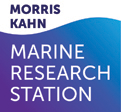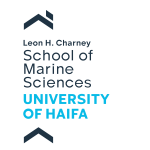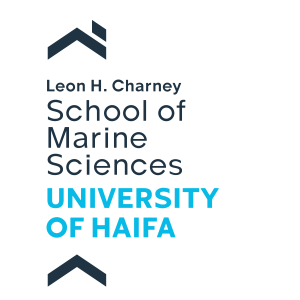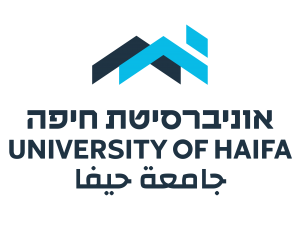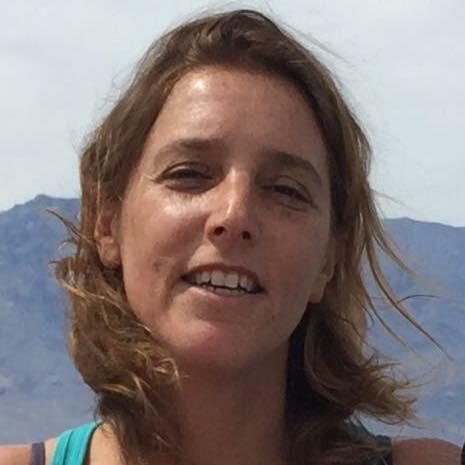
Academic Education:
Period | Institute | Degree | Field of study |
2014-2017 | Bar Ilan University, Israel | Post doc | Corals microbiome and gene expression under heat stress. |
2012-2014 | Bar Ilan University, Israel | Post doc | Invertebrates microbiome under ocean acidification. |
2007-2012 | Bar Ilan University, Israel | Ph.D | Cnidaria microbiome under environmental changes |
2000-2002 | Bar Ilan University, Israel | M.Sc | The symbiotic relationship between the sea anemone and anemonefish in the Red Sea |
1997-2000 | Israel Maritime College, Michmoret, Israel | B.Sc | Marine studies |
Dalit Meron is a marine ecologist and microbiologist researching the microbial communities in the marine surrounding. She is part of the Research Fellows team at the Morris Kahn Marine Research Station (MKMRS) and manages the Long Term Ecological Research of the sediment and microbiome projects. Her research focuses on: (1) The holobiont concept and symbiotic relationships under environmental changes, understanding the role of the associate microbial members on the host health and disease and their impact on the acclimation and host tolerance under stresses. These studies included a variety of organisms including corals, sea anemones, fish and sharks. (2) Monitoring and characterizing the sediment microbial communities along the continental shelf of east Mediterranean Sea in order to examine health site and further changes following environmental changes and anthropogenic impacts. (3) Develop a microbial-molecular indicator to monitor the sediment environment. Her work includes microbiological techniques, molecular biology and bioinformatics analysis of NGS and metagenomics.
Current Research:
- Continue monitoring the sediment microbiota along the continental shelf.
- Shark microbiota at a unique mix-species shark aggregation site
- Respiratory, gut and skin microbiome of loggerhead (Caretta caretta) and green (Chelonia mydas).
- Microbiome and ecophysiology of marine pelagic copepods under environmental and anthropogenic stressors
- Analysis of the impact of global warming and low primary production on the metabolic rate of the holobiont Brachidontes pharaonis using dynamic energy budget theory.
- Conomurex persicus microbiome and physiology under anthropogenic enrichment
- Lionfish microbiome – their role in the success of the invasion.
Publications
- Bregman, G., Lalzar, M., Livne, L., Bigal, E., Zemah-Shamir, Z., Morick, D., Tchernov, D., Scheinin, S., and Meron, D. (2023). Preliminary study of shark microbiota at a unique mix-species shark aggregation site, in the Eastern Mediterranean Sea. Accepted to Frontiers in Microbiology.
- Lalzar, M., Zvi-Kedem, T., Korin, Y., Martinez, S., Tchernov, D. and Meron, D. (2023). Sediment microbiota as a proxy of environmental health: discovering inter- and intra-kingdom dynamics along the Eastern Mediterranean coastal shelf. Microbiology Spectrum e02242-22.
- Velasquez, X., Morov, A., Belkin, N., Kurt, T. T., Rubin-Blum, M., Tchernov, D., *Dalit Meron & *Guy-Haim, T. (2022). Feeding strategy and dietary preference shape the microbiome of epipelagic copepods in a warm nutrient-impoverished ecosystem. DOI: 10.22541/au.164873512.23960727/v1
- Itay, P., Shemesh, E., Lalzar, M., Davidovich, N., Kroin, Y., Zrihan, S., Stern, N., Diamant, A., Meron, D., Soto, E., Hekman, T., Tchernov, D. and Morick, D. (2022). An Insight into Gill Microbiome of Eastern Mediterranean Wild Fish by Applying Next Generation Sequencing. Frontiers in Marine Science 9.
- Velasquez, X., Morov, A. R., KURT, T. T., Meron, D., & Guy-Haim, T. (2021). Two-way bioinvasion: tracking the neritic non-native cyclopoid copepods Dioithona oculata and Oithona davisae (Oithonidae) in the Eastern Mediterranean Sea. Mediterranean Marine Science, 22(3), 586-602.
- Meron D*., Maor-Landaw K*., Eyal G., Elifantz H., Banin E., Loya Y. & Levy O. (2020). Characterizing the holobiont of symbiotic and apo-symbiotic colonies of the Red sea mesophotic coral Euphyllia paradivisa under heat-stress. Microorganisms 8, 372.
- Meron D., Davidovtich N., Ofek-Lalzar M., Berzak R., Scheinin A., Regev Y., Diga R., Tchernov D. & Morick D. (2020) Specific pathogens and microbial abundance within liver and kidney tissues of wild marine fish in the Levantine Basin, Mediterranean Sea. Microbial biotechnology. Microbial Biotechnology, 13(3), 770-78
- Meron D*., Maor-Landaw K*., Eyal G., Banin E., Loya Y. and Levy O. (2019) The algal symbiont effect on heat stress susceptibility in the scleractinian coral Euphyllia paradivisa. Microorganisms 7, 256; doi:10.3390/microorganisms7080256.
- Fine M., Tsadok R., Meron D., Cohen S., & Milazzo M. (2016) Environmental sensitivity of Neogoniolithon brassica-florida associated with vermetid reefs in the Mediterranean Sea. ICES Journal of Marine Science, 74(4), 1074-1082
- Meron D., Buia MC, Fine M. & Banin E. (2012). Changes in microbial communities associated with the Sea anemone Anemonia viridis in a natural pH gradient. Microbial Ecology 65(2), 269-276.
- Meron D., Rodolfo-Metalpa R., Cunning R., Baker A.C., Fine M. & Banin E. (2012) Changes in coral microbial communities in response to a natural pH gradient. ISME J. 9: 1775-1785.
- Meron D., Atias E., Iasur Kruh L., Elifantz H., Minz D., Fine M. & Banin E. (2011). The impact of reduced pH on the microbial community of the coral Acropora eurystoma. ISME J. 5: 51-60.
- Meron D., Efrony R., Johnson WR., Schaefer A. L., Morris PJ., Rosenberg E., Greenberg EP. & Banin, E. (2009). Role of Flagella in Virulence of the Coral Pathogen Vibrio coralliilyticus. Applied and environmental microbiology. 75: 5704-5707.
- Porat D. & Chadwick-Furman NE. (2005) Anemonefish on giant sea anemones. Ammonium uptake, zooxanthella content and tissue regeneration. Marine and Freshwater Behavior and Physiology. 38(1): 43-51.
- Porat D. & Chadwick-Furman NE. (2004) Effect of anemonefish on giant sea anemones: expansion behavior, growth, and survival. Hydrobiology 00:1-8.
- Chapter in book:
- Meron D, Hazanov L., Fine M. & Banin E. (2011) Chapter 11: Effect of ocean acidification on the coral microbial community, In Beneficial microorganisms in multicellular life forms. Rosenberg E. and Gophna U., Spirnger Berlin Heidelberg, part 3: 163-173, DOI: 10.1007/978-3-642-21680-0_11.
- Porat D. & Chadwick-Furman N.E. (2007) Arvedlund, M. Hermansen, T.D. Coral Reef Biology. Xi, 211 pp. Design & layout by the authors. Published via own established publishing company: Reef Consultants Publishing.
